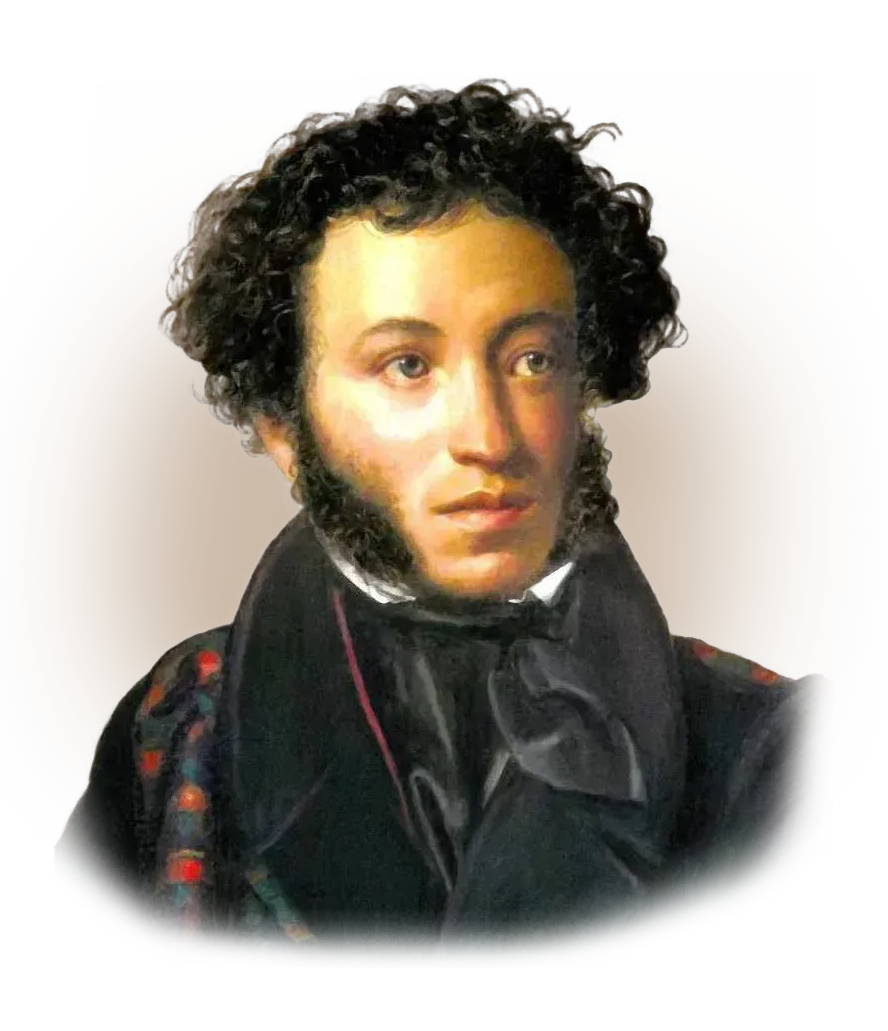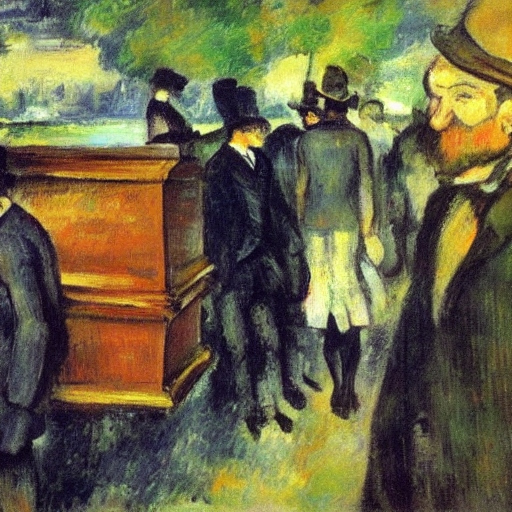
09.12.2022
The Undertaker is a story by Alexander Sergeevich Pushkin from the cycle of Tales of the late Ivan Petrovich Belkin, written in 1830 and published in 1831.
The Coffin-Maker by Alexander Pushkin – read online
The last of the goods and chattels of the undertaker, Adrian Próhoroff’s were heaped into the hearse, and a pair of lean horses dragged it along for the fourth time from the Basmánaja to the Nikítskaja, for to the latter street the undertaker was removing with all his household. Having closed his old shop, he nailed a notice to the door, to the effect that the premises were to be sold or let, and started off on foot to his new abode. He was surprised to find on approaching the little yellow house, which had so long taken his fancy, and which he had at last bought for a considerable sum, that he did not feel in good spirits.
Having crossed the new threshold and finding his new abode in great confusion, he sighed at the recollection of the old hovel, where during eighteen years everything had been conducted with the strictest regularity, and he scolded his daughters and the maid-of-all-work for their dilatoriness, and set to, assisting them himself. Order was soon established; the sacred image-case, the dresser with the crockery, the table, sofa, and bed, occupied the corners assigned to them in the back room; in the kitchen and the sitting-room was placed the master’s handiwork, which consisted of coffins of all sizes and colours, and the cupboards were filled with mourning cloaks and torches. Over the gate appeared a sign-board, representing a corpulent Cupid holding a reversed torch, with the inscription: Here are sold and ornamented plain and painted Coffins; Coffins also let out on hire, and old ones repaired. The girls retired to their room, and Adrian having inspected his dwelling, sat down by the window, and ordered the samovar to be got ready.
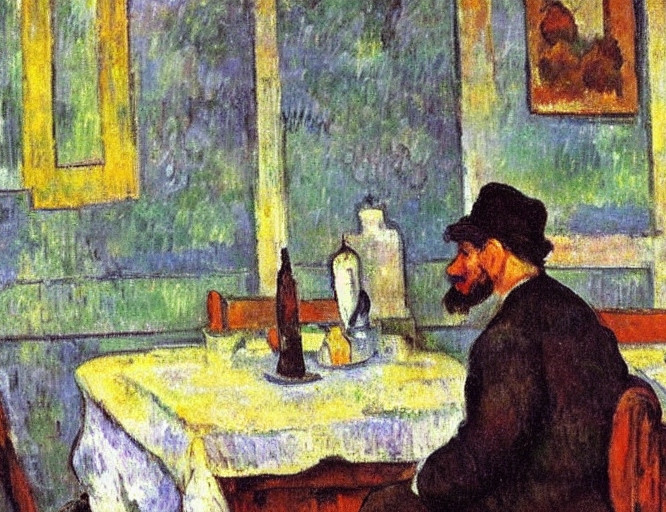
The enlightened reader is aware that both Shakespeare and Walter Scott represented their grave-diggers as cheerful and jocose persons, in order to strike our imagination more forcibly by the contrast. Out of regard to truth, however, we cannot follow their example, and are compelled to admit that the disposition of our undertaker fully corresponded with his mournful calling. Adrian Próhoroff was habitually sullen and thoughtful. His silence might occasionally be broken for the sole purpose of scolding his daughters when he chanced to find them idle, gazing out of the window at the passers-by, or asking an exorbitant price for his goods, of those who had the misfortune (and sometimes also the good fortune) to require them. Thus it happened that Adrian, now sipping his seventh cup of tea, was as usual sunk in melancholy reflections. He thought of the pouring rain which fell at the very outset of the retired Brigadier’s funeral the previous week. Many mourning cloaks had shrunk in consequence, and many hats had been spoiled. He foresaw unavoidable expenditure, for his old stock of mourning attire had fallen into a pitiful condition. He hoped to charge a good round sum at the funeral of the merchant Truhin’s old wife, who had now been nearly a year at death’s door. But the old woman lay dying at Rasgoulaï, and Próhoroff feared lest her heirs, notwithstanding their promise, would neglect to send for him all that distance, and would come to terms with the nearest undertaker.
These meditations were unexpectedly disturbed by three freemason-like taps at the door.
“Who is there?” asked Próhoroff.
The door opened, and a man in whom the German artisan was recognized at a glance, walked in, and cheerfully approached the undertaker.
“Pardon me, my dear neighbour,” said he, in that Russian dialect which we cannot listen to without a smile. “Pardon my intruding upon you—I was anxious to make your acquaintance. I am a bootmaker, my name is Gottlieb Schulz, and I live across the street, in the little house facing your windows. To-morrow I celebrate my silver wedding, and I came to ask you and your daughters to dine with us in a friendly way.”
The invitation was accepted with good-will. The undertaker asked the bootmaker to sit down and take a cup of tea, and thanks to the cordial disposition of Gottlieb Schulz, their conversation soon became friendly.
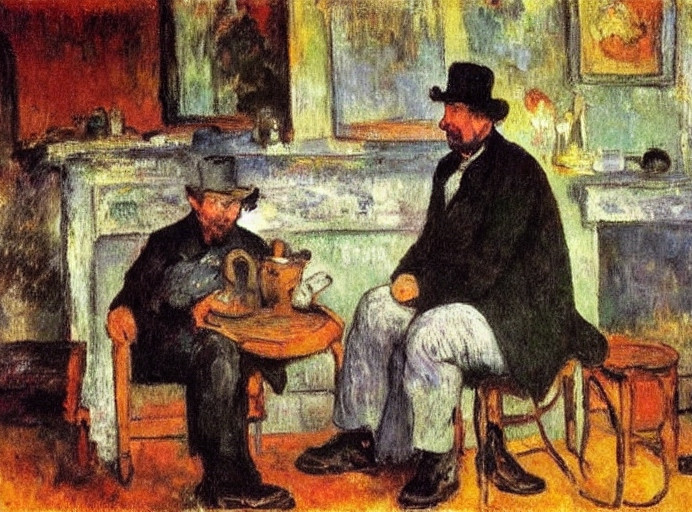
“How does your trade prosper?” asked Adrian.
“Ah—he—he!” answered Schulz, “so, so, I cannot complain, although my goods are of course different from yours: a live man can do without boots, but a dead man cannot do without a coffin.”
“Very true,” remarked Adrian; “however, if the live man has not got wherewith to pay for his boots, one cannot take it amiss in him if he goes barefooted, but a dead beggar has a coffin gratis.”
In this manner they conversed for some time. At last the bootmaker rose, and taking leave of the undertaker, renewed his invitation.
The next day at twelve o’clock precisely, the undertaker and his daughters passed through the wicket of the newly bought house on their way to neighbour Schulz. I shall not describe either the Russian caftan [A long coat worn by the lower classes] of Adrian Próhoroff, or the European attire of Akoulina and Daria, departing in this respect from the now so prevalent custom among novelists. I do not, however, consider it superfluous to remark, that both young ladies wore yellow bonnets and red shoes; this they did only on grand occasions.
The small dwelling of the bootmaker was filled with guests, who chiefly consisted of German artisans, their wives, and their workmen; of Russian employés there was but one, the Esthonian, Yoorko the watchman, who had, in spite of his lowly calling, managed to secure the special good-will of his host. He had served in this capacity for five-and-twenty years, faithfully and honestly, like the postman [In “Grandmother’s Cat”] of Pogarelsky. The fire of 1812, which destroyed the chief capital, annihilated also his yellow watch-box. But as soon as the enemy was expelled, a new one appeared in its stead: it was gray, with small white Doric pillars, and Yoorko in gray cloth armour and axe [Ismailoff’s fables] was again seen pacing before it. Almost all the Germans who lived in the vicinity of the Nikitsky gates knew him, and some had even chanced to spend the night of Sunday to Monday morning under his roof. Adrian hastened to make his acquaintance as he would that of a man of whom he might stand in need, sooner or later, and when the guests took their seats at dinner, they sat next to each other. Monsieur and Madame Schulz and their daughter Lottchen, who had seen but seventeen summers, whilst dining with and entertaining their guests, assisted the cook to wait upon them. Beer flowed. Yoorko ate for four; Adrian did not cede to him; his daughters, however, stood on ceremony. The conversation kept up in the German language, was becoming louder and louder. Suddenly the host begged for a few moments’ attention, and drawing the cork of a sealed bottle, exclaimed in a loud voice, in Russian: “The health of my good Louisa!” The so-called champagne sparkled. The host tenderly kissed the fresh face of his forty-year-old helpmate, and the guests drank noisily to the health of the good Louisa. “The health of my amiable guests!” exclaimed the host opening a second bottle. And his guests thanked him, and again drained their glasses. Here toast followed upon toast; the health of each guest was drunk separately; they toasted Moscow and an entire dozen of little German towns, all corporations in general, and each one in particular; they drank to masters, and they drank to foremen. Adrian drank sedulously, and was so elated that he himself proposed some jocular toast. Suddenly, one of the guests, a fat baker, raised his glass, and exclaimed: “To the health of those we work for—unſerer Kundleute!” This proposal, like all the others, was joyously and unanimously applauded. The guests saluted each other, the tailor bowed to the bootmaker, the bootmaker to the tailor, the baker to both; all to the baker, and so on. Yoorko, in the midst of these mutual salutations, exclaimed, turning to his neighbour:
“What, now? drink, sir, to the health of thy dead ones.”
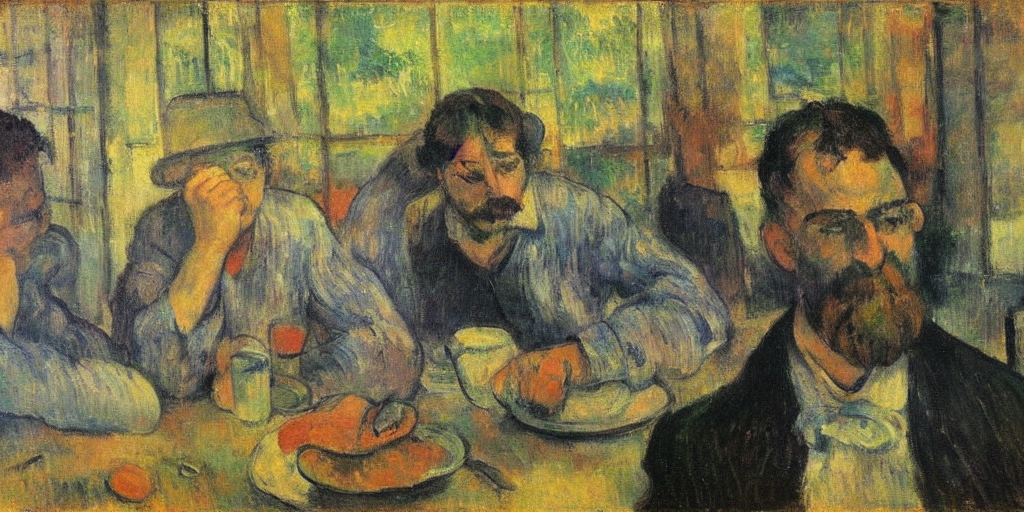
All laughed, but the undertaker considering himself affronted, became sullen. Nobody noticed him; the party continued its carouse, and the bells had already rung for vespers when all rose from the table.
The guests dispersed at a late hour, and most of them were elevated. The fat baker and the bookbinder, whose face appeared as if bound in red morocco, led Yoorko between them to his box, carrying out in this case the Russian proverb: A debt is rendered honourable by payment. The undertaker returned home tipsy and wrathful. “Why, indeed,” reasoned he aloud: “Why is my craft worse than any other? Is an undertaker, then, brother to an executioner? What had the heathens to laugh at? Is an undertaker a Christmas harlequin? I meant to have asked them to a house-warming, to have given them a feast; but let them wait till they get it. And I shall now invite instead those for whom I work, my orthodox dead.”
“What, sir?” said the maid, who was pulling off his boots, “what dost thou talk about? Make the sign of the cross! To ask the dead to a house-warming! What horror!”
“By —— I shall ask them,” continued Adrian; “I shall ask them at once, for to-morrow. Pray come, my benefactors, come to feast with me to-morrow evening; I shall entertain you with what God has given me.” So saying, the undertaker tumbled into bed, and soon began to snore.
It was still dark when Adrian was roused. The merchant Truhin’s wife had died that very night, and a special messenger had been sent on horseback with this intelligence. The undertaker gave him a ten-copeck piece for a vodka [A glass of spirits], dressed in haste, took a droshky, and drove to Rasgoulaï. The police were already stationed at the gates of the house where lay the defunct; tradespeople were going in and out, like ravens at their prey. The corpse lay on a table, yellow as wax, but not yet disfigured by decomposition. Relations, neighbours, and friends crowded around. All the windows stood open; candles were burning; priests were reading prayers. Adrian went up to Truhin’s nephew, a young merchant in a fashionable coat, and assured him that the coffin, candles, pall, and other funeral furniture, would be delivered with all punctuality and without fail. The heir thanked him absently, saying that he would not bargain about the expense, but should trust implicitly to his conscience. The undertaker, as usual, swore that he would not overcharge; exchanged a significant glance with his workmen, and started off to make the necessary arrangements. The whole day was spent driving to and fro between Rasgoulaï and the Nikitsky gates; towards evening, all being arranged, he settled with his driver, and returned homewards on foot. It was a moonlight night. The undertaker had safety reached the Nikitsky gates. At the Church of the Ascension, our friend Yoorko hailed him, and on recognizing the undertaker wished him good-night. It was getting late. The undertaker was approaching his house, when he suddenly fancied he saw some one nearing it, open the wicket, pass through, and disappear. “What can this mean?” thought Adrian. “Who is it wants me again? Can it be a thief? Do lovers perhaps visit my silly girls? It bodes evil!” And the undertaker was on the point of calling his friend Yoorko to come to his aid. Just then some other person approached the wicket and was about to enter, but, on becoming aware that Adrian was nearing hurriedly, this person stopped, and raised his cocked hat; Adrian fancied he knew the face, but was not, in his haste, able to examine it closely. “You were coming to me,” said Adrian, breathlessly; “do me the favour to step in.”
“No ceremonies, friend,” said the stranger, in a hollow voice; “walk on, show thy guests the way!”
There was no time to stand on ceremony. The wicket stood open, Adrian went up the staircase, the person following him. Adrian fancied that people were walking about his rooms. “What devilry is this?” thought he, and hurried in—but here his legs gave way. The room was full of dead people.
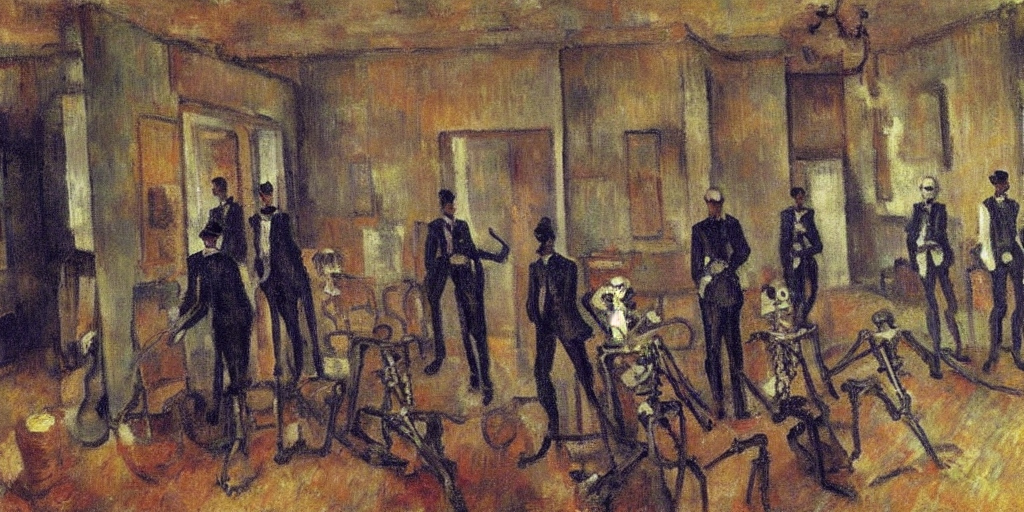
The moon shining through the windows, lit up their yellow and blue faces, sunken mouths, dull half-closed eyes, and thin protruding noses. Adrian recognized in them, with dread, people who had been buried with his aid; and in the guest whom he had preceded, the brigadier who had been interred during the pouring rain. All the women and men assembled, surrounded the undertaker, bowing, and greeting him; all except one poor fellow, who had quite recently been buried gratis, and who, shy and ashamed of his tatters, did not venture to come forward, but stood retiredly in a corner. The rest were respectably dressed: the women wore caps with ribbons; those men who had served the State, were in uniform, but their faces were unshaven; merchants wore their holiday caftans. “Seest thou, Próhoroff,” said the brigadier, in the name of this select company, “how we have all risen at thy invitation. Those alone have remained at home who could not possibly come, who had quite crumbled to pieces, or who had no skin, but only their bare bones left; but even thus, one of them could not rest—so anxious was he to see thee!”
At that moment a small skeleton pushed his way through the crowd, and approached Adrian. His skull smiled affectionately at the undertaker. Bits of light green and red cloth, and of old linen, hung here and there about him, as upon a pole, whilst the bones of his feet rattled in his Hessian boots, like a pestle in a mortar. “Thou dost not recognize me, Próhoroff,” said the skeleton. “Dost thou remember the retired sergeant of the Guards, Piotr Petróvitch Kurilkin, the same for whom thou soldest thy first coffin, in the year 1799—and one of pine too, for one of oak!” So saying, the corpse extended his bony arms towards him; but Adrian, mustering all his strength, cried out, and pushed him from him. Piotr Petróvitch tottered, fell, and went to pieces.
A murmur of indignation was heard amongst the dead; they stood up for the honour of their fellow, threatening and upbraiding Adrian; and the poor host, deafened by their cries, and almost pressed to death, losing his presence of mind, fell across the bones of the retired sergeant of the Guards, and remained unconscious.
The sun-light had long been streaming across the bed on which the undertaker was sleeping. At last he opened his eyes, and saw before him the maid, blowing at the charcoal of the samovar. Adrian remembered with dread all the events of the preceding day: Truhin, the brigadier, and the sergeant appeared dimly before him. He was silently expecting the girl to begin the conversation, and to relate to him the results of the night’s adventures.
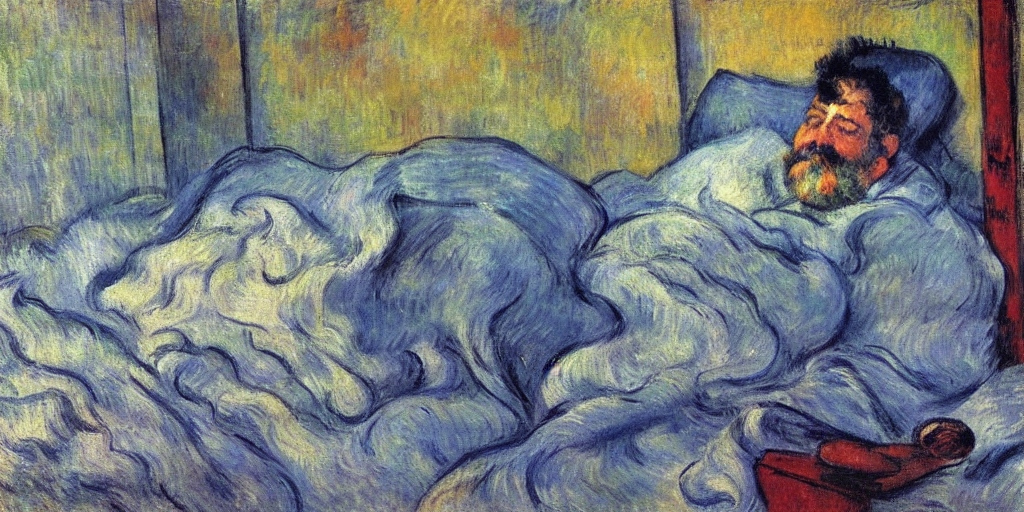
“How thou hast overslept thyself, Adrian Próhorovitch, sir,” said Aksinia, handing him his dressing-gown. “Thy neighbours, the tailor and the watchman, came to thee with the announcement that it was the Saint’s-day of the Commissary of Police, but thou wast pleased to sleep, and we did not like to awake thee.”
“And did they come to me from the late Madame Truhin?”
“Late? Is she then dead?”
“Fool that thou art! didst not thou thyself help me to arrange things for her funeral?”
“Hast thou lost thy senses, sir? or have the fumes of last night’s drink not passed off yet? What funeral was there yesterday? Thou didst feast at the German’s all day, and coming home tipsy, didst throw thyself on thy bed, and didst sleep until this very hour, when the bells have already rung for mass.”
“Indeed!” said the rejoiced undertaker.
“Of course,” answered Aksinia.
“Well, if that is the case, let us have the samovar quickly, and call my daughters.”
